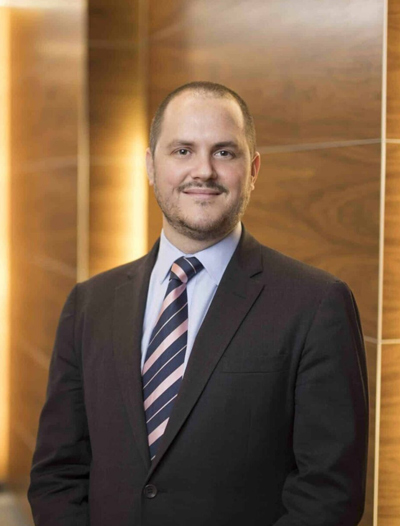ARTICLES BY MATT GIJSELMAN
Oct 2024
Resilient cities: a strategic approach to future-proof urban infrastructure in Australia
Australia faces growing climate challenges, including rising sea levels, extreme weather, storm surges, heatwaves, and heavy rainfall, highlighting the urgent need for resilient infrastructure.
Smart technology, such as digital twins and AI, plays a crucial role in building this resilience by enabling cities to manage infrastructure more effectively, anticipate risks, and promote sustainability.
Aug 2024
Energy Transition and Investment Summits
Following our Energy Transition and Investment Summits in Sydney and Perth, we are delighted to bring you the latest edition of our quarterly magazine!
This issue includes an article from Her Excellency Vicki Treadell CMG, MVO, British High Commissioner to Australia, on the United Kingdom’s commitment to climate partnership 🇬🇧 🤝 🇦🇺
July 2024
Innovation stations: Beca bridges the future gap
The Homai Train Station project in Auckland stands out for its use of digital tools that elevated inclusive community engagement to new heights. Beca employed a range of digital approaches to respond to the diverse needs of the local community, including a nearby blind and low vision school campus.
The project aimed to increase the station’s capacity through a range of measures, including removal of at-grade entry to the station and extension of the platform. Additional changes included modernisation of facilities such as improved lighting and shelter.
July 2024
Meaningful Measurement for Whole-life Carbon in Infrastructure
The rubber is starting to hit the road in the transport space with significant Government announcements on Roads of National Significance and road maintenance.
Matt Gijselman of Bentley Systems and Asem Zabin of GHD Digital have provided an informative and thought-provoking commentary on the opportunities presented by digital twin technology and how greater use of it can improve the management, and ultimately efficiency and effectiveness, of infrastructure development in New Zealand.
May 2024
This is the “decade for engineering”: How to bolster the future of innovation
By removing roadblocks and embracing new technology, engineering can continue to be the driving force behind Australia’s progression.
The engineering profession powers the way society moves, from our everyday travel to food and medicine distribution, according to Matt Gijselman, Director of Infrastructure Policy Advancement at Bentley Systems.
April 2024
Revolutionising tunnel tech: SMEC's innovative approach to the Burnley Tunnel
Innovation in the engineering and construction industry is pivotal for the long-term health and success of the entire Australian economy. Bentley Systems is leading the way with innovations in generative AI and digital twin systems and are also proud to support innovation across the industry.
In a recent catch-up with David Blair, National Sector Leader for Transport Planning and Advisory at SMEC, Matt Gijselman discusses their approach to innovation, as well as the project that saw them take home the Innovation for Excellence Award at the recent 2023-24 Consult Australia Awards for Excellence. We discussed SMEC’s innovative practices and strategic thinking behind the Burnley Tunnel project in Melbourne, and how similar projects can propel the industry forward.
Dec 2023
How to build a better playing field
Bentley Systems’ director of public policy and advocacy Matt Gijselman has an unusual job. His company may have a reputation for digital twins in buildings and building information management or BIM systems for huge infrastructure projects, such as the UK’s High Speed Rail 2, but that is not what he is working on.
His job, he says, is more about digitally “twinning” the social, environmental, and governance systems that enable or constrain a potentially better outcome for all. He is working on the broad landscape that underpins projects rather than the projects themselves.
Sept 2022
Addressing Risk Allocation in Infrastructure Delivery: A Pragmatic View
Infrastructure is the linchpin that holds together the journey of entire nations towards economic and social prosperity. Ensuring that roads, bridges, hospitals, and other vital structures are built effectively and efficiently requires an in-depth understanding risks and their allocation in infrastructure development. Digital tools can provide a clearer view of when, where, and who is making decisions and enables risk allocation to be more equitably allocated. A well-thought-out model for risk allocation is necessary, yet the current paradigm often burdens contractors and subcontractors in an unbalanced manner. The concept of ‘risk’ in infrastructure, as described by experts like Ellis Baker, Richard Hill, and Ibaad Hakim, encompasses any ‘uncertain event or set of circumstances that, if they occur, will have an impact on achieving one or more of a project’s objectives’.
July 2023
Digital twins in the rail sector: Avoiding downtime, improving safety and reducing costs
Creating a robust and comprehensive picture of an asset through digital twins is helping to drive smoother and safer operations in the rail sector.
As the rail sector adopts technologies to enhance safety and efficiency, digital twins are emerging as a significant technology to support these gains.
By providing a comprehensive understanding of assets throughout their lifecycle, digital twins can contribute to the overall operational efficiency of the rail sector.
Oct 022
Will megaprojects bring Australia’s construction industry to the next level?
Australia’s era of megaprojects has begun. What does this mean for the construction sector? Both mega challenges and opportunities, says expert Matt Gijselman.
There have never been as many megaprojects in Australia as there are currently, with more in the infrastructure pipeline. According to Matt Gijselman, director of public policy and advocacy for Bentley Systems, it’s important to take stock of the management challenges these projects pose so that current and future projects can achieve successful outcomes.










